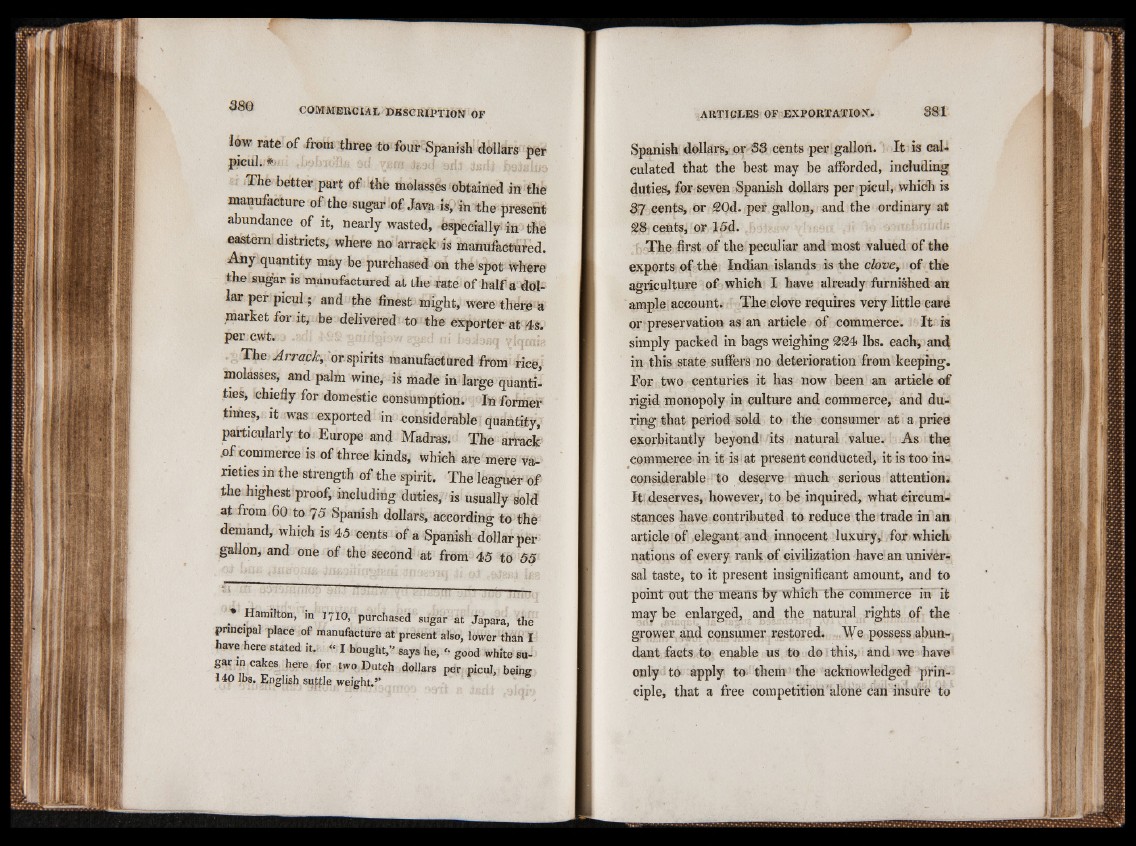
low rate of from three to four Spanish dollars per picul. *
The better part of the molasses obtained in the
manufacture of the sugar of Java is, in the present
abundance of it, nearly wasted, especially in the
eastern districts, where no arrack is manufactured.
Any quantity may be purchased on the spot where
the sugar is manufactured at the rate of half a dollar
per picul; and the finest might, were there a
market for it, be delivered to the exporter at 4s.
per cwt.
The ArracJc, or-spirits manufactured from rice,
molasses, and palm wine, is made in large quariti-
ties, chiefly for domestic consumption. In former
times, it was exported in considerable quantity,
particularly to Europe and Madras, The aitack
.of commerce is of three kinds, which are mere va-
rieties in the strength of the spirit. The leaguer of
the highest proof, including duties, is usually sold
at from 60 to 75 Spanish dollars, according to the
demand, which is 45 cents of a Spanish dollar per
gallon, and one of the second at from 45 to 55
♦ Hamilton, in 1710, purchased sugar at Japara, the
principal place of manufacture at present also, lower than I
have here stated it. “ I bought/' says he, .* good white su-
gar m cakes here for two Dutch dollars per picul, being
140 lbs. Epglish suftle weight.”
Spanish dollars, or S3 cents per gallon. . It is calculated
that the best may be afforded, including
duties, for seven Spanish dollars per picul, which is
37 cents, or 20d. per gallon, and the ordinary at
28 cents, or 15d.
The first of the peculiar and most valued of the
exports of the Indian islands is the clove, of the
agriculture of which I have already furnished an
ample account. The clove requires very little care
or preservation as an article of commerce. It is
simply packed in bags weighing 224 lbs. each, and
in this state suffers no deterioration from keeping.
For two centuries it has now been an article of
rigid monopoly in culture and commerce, and during
that period sold to the consumer at a price
exorbitantly beyond its natural value. As the
commerce in it is at present conducted* it is too inconsiderable
to deserve much serious attention,
ft. deserves, however, to be inquired, what circumstances
have contributed to reduce the trade in an
article of elegant and innocent luxury, for which
nations of every rank of civilization have an universal
taste, to it present insignificant amount, and to
point out the means by which the commerce in it
maybe enlarged, and the natural rights of the
grower and consumer restored. We possess abundant
facts to enable us to do this, and we have
only to apply to them the acknowledged principle,
that a free competition hlbne can insure to